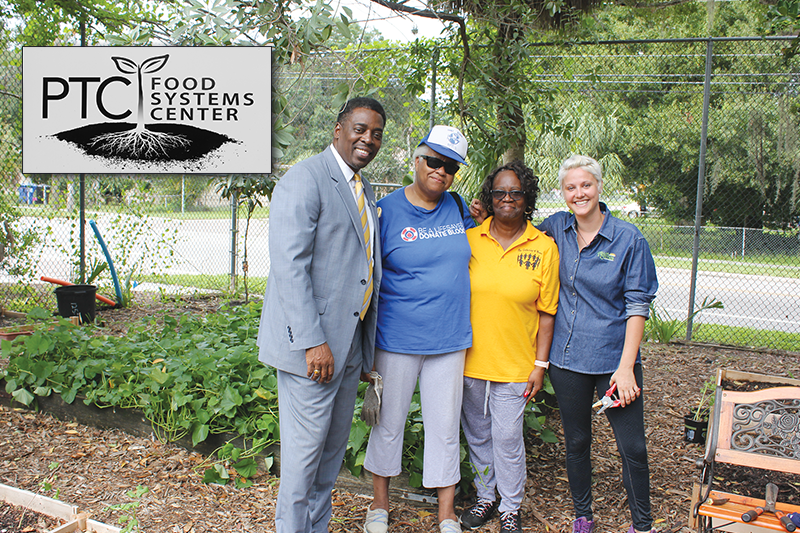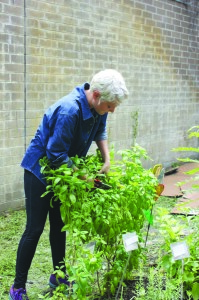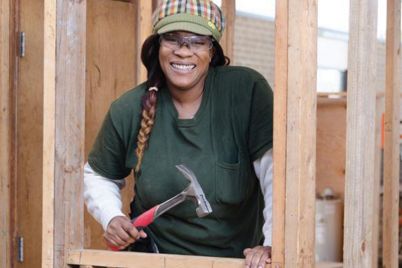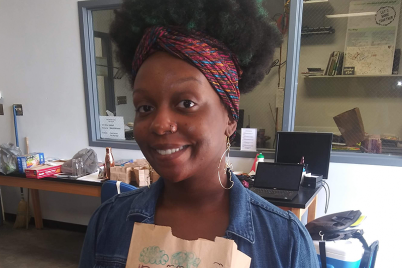PTC’s emerging gardening program, funded by Alleghany Franciscan Ministries Foundation, is offering short courses in growing healthful foods and is a place where the youth can learn how to garden. Pictured here: L-R, PTC Director Boe Norwood, the Gathering of Women, Inc.’s Mary Footman and Samantha Richardson and Program Coordinator Nicole













